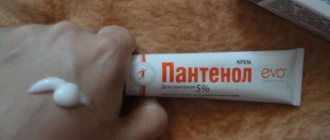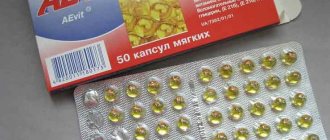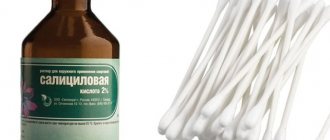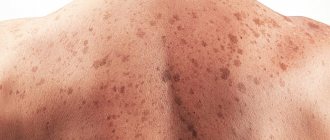Description and composition of Doxycycline
Doxycycline is a synthetic antibacterial agent. The drug is prescribed to treat diseases caused by a variety of bacteria. Doxycycline for acne prevents the proliferation of pathogenic microorganisms.
The active substance has a detrimental effect on the following types of flora:
- bacteria (gram-positive, gram-negative);
- chlamydia;
- coli;
- gonococcus;
- staphylococcus;
- streptococcus.
The antibiotic is characterized by rapid absorption and distribution throughout the body, due to which a gradual elimination of acne is achieved. Elements of the drug are excreted along with waste products (urine, feces).
The composition of the antibiotic depends on the dosage form. Hard capsules contain:
- glycerol;
- gelatin;
- purified water;
- titanium dioxide;
- dyes (E 104, E 110);
- sodium lauryl sulfate;
- calcium stearate;
- potato starch;
- lactose monohydrate;
- hycladoxycycline.
Yellow tablets have a biconvex shape and are similar to capsules. There is a line mark on one side and an engraving of 173 on the other. Doxycycline monohydrate is used as the active substance.
The powdery mixture is a yellowish, clarified powder in the form of crystals. To prepare the solution, the powder is diluted in water.
Warning
What are doxycycline tablets for? The medicine is used only in the treatment of moderate or severe acne. For mild acne, this drug is not used.
What else is doxycycline tablets used for? Also, an antibiotic can be prescribed when no other treatment has brought the desired result, that is, it has turned out to be useless.
Doxycycline for acne begins to act literally in the first week of use. This medicine has proven itself especially well in the following complications:
- Conglobate acne.
- Boils.
- Carbuncles.
- Pyoderma.
- Abscesses.
Available in three forms - tablets, capsules and solution for intramuscular administration. Only your doctor can advise you on what is the best way to use doxycycline tablets.
Indications for use of Doxycycline
It is known that Doxycycline is an antibacterial drug from the tetracycline group. The drug is prescribed for various diseases, which is associated with its high effectiveness. Indications for use are due to inflammatory processes of a bacterial nature:
- genitourinary system;
- respiratory tract;
- Gastrointestinal tract;
- organs of vision.
An antibiotic is prescribed to treat pustular skin lesions. The use of the drug is necessary after surgery to prevent purulent complications.
Instructions for use of Doxycycline for acne
The use of an antibiotic for acne should be as directed and under the supervision of a physician. The dosage form and dosage depend on the location and severity of acne.
Instructions for use of Doxycycline for acne indicate the need to use the drug for 5-7 days. The drug is taken 2 times a day (100 mg).
Treatment of acne with Doxycycline in children 9-14 years old is carried out according to the following scheme:
- dosage at the rate of 4 mg per 1 kg of weight twice a day (2 days);
- dose 3 mg per 1 kg of weight on the remaining days.
Adolescents over 14 years of age take Doxycycline for acne according to the following regimen:
- a dose of 200 mg once on day 1 of treatment;
- dosage, which involves taking 100 mg of the drug, 2 times a day.
Doxycycline tablets for acne should be taken 1-2 times a day. To prevent intestinal dysbiosis, it is recommended to take medications that support the gastrointestinal tract. During the period of therapy, it is advisable to increase the consumption of fermented milk products, which include kefir, fermented baked milk, yogurt or yogurt.
Acne masks based on Doxycycline
Doxycycline for acne can be used externally as a mask.
With cosmetic clay
To prepare the mask, use white or green clay, which is diluted with water to the consistency of sour cream. Add crushed antibiotic tablets (5 pieces) to the mixture and mix gently. The mask is applied to the face and washed off with warm water after 15 minutes.
With egg
The mask is suitable for dry skin. A beaten chicken egg is mixed with antibiotic powder, which is obtained from medication capsules. You need to add a teaspoon of olive oil and 10 g of starch (potato) to the mixture. After thorough mixing, the mask is applied to the affected areas of the skin and washed off after 15 minutes.
Attention! The course of treatment involves the use of two procedures over 3 weeks.
With milk
A milk mask is recommended for oily skin and acne. The contents of 2 antibiotic capsules are mixed with 20 g of flour. To obtain a thick paste, add 50 ml of milk (with a low fat content). A drop of essential oil will help enhance the effect. The mask should be applied to the acne area and washed off after 10 minutes.
The mask is applied to the face 1-2 times during the week. The course of therapy is one and a half months.
Reviews
We invite you to read the reviews of ordinary people about the use of doxycycline for acne, and if you have any questions, you can always ask your question on our forum.
We invite you to read reviews from ordinary people about the use of doxycycline for acne, and if you have any questions, you can always ask on our forum. Quite often I use doxycycline to prepare a variety of mash, this allows me to clear the skin of inflammation in a short time. I use it in combination with clindamycin. I used to add tetracycline, but stopped doing this because it leaves yellow spots on the skin that are difficult to wash off.
Ksenia, 22 years old, Moscow
I used this antibiotic as an antibacterial component in a mask, the effect is always pleasing. I recommend buying capsules; you don’t need to grind it. It is enough to open it and just pour it out, this allows you not to waste time and energy on grinding the tablets. It is also worth adding a couple of aspirin tablets to the combination, which perfectly reduce the severity of inflammation and perfectly dry out the pimple.
Valentina V. 29 years old, Dmitrov
Contraindications to the use of Doxycycline
There are a number of contraindications, if identified, the use of Doxycycline is not recommended. Contraindications to taking the drug include:
- hypersensitivity reactions to the components of the drug;
- liver failure;
- liver dysfunction;
- pregnancy;
- lactation period;
- porphyria;
If contraindications to taking Doxycycline are identified, the doctor prescribes a medication with a similar therapeutic effect. Concomitant use with alcohol is prohibited.
Use during pregnancy and lactation
Pregnancy at any stage is a direct contraindication for the use of Doxycycline, since the substances of the drug are able to cross the placental barrier.
Violation of this prohibition can lead to the following developmental disorders of the fetus:
- Pathological accumulation of fat in liver cells;
- Pathologies of dental development;
- Exhaustion and lack of normal development of the musculoskeletal system.
The active ingredient of the drug can penetrate into mother's milk, so lactation will also be a contraindication. If there is an urgent need to use the product, breastfeeding should be stopped.
During pregnancy, Doxycycline can be used externally, but under the strict supervision of a dermatologist.
Side effects and overdose
Doxycycline has a high degree of antibacterial activity. Taking Doxycycline for acne may cause side effects:
- nausea;
- swelling;
- vomiting;
- itching;
- rash;
- dizziness;
- anxiety;
- drowsiness;
- pain in joints and muscles.
When taking tablets and capsules, stool disorders often appear. To minimize the harmful effects of the drug on the digestive tract, the antibiotic should be taken after meals and washed down with a sufficient amount of liquid. In case of severe adverse reactions, you should consult a specialist.
Attention! Taking Doxycycline while sitting or standing reduces the risk of developing esophageal inflammation or esophagitis.
Side effects
When taking Doxycycline there is a risk of the following side effects:
- Metabolic disorders and the development of anorexia;
- Increased levels of intracranial pressure and disruption of the central nervous system;
- Deterioration of appetite and changes in the state of natural microflora;
- Headache and tinnitus.
- Complex disorder of the digestive system, as well as nausea and diarrhea;
- Allergic reaction and urticaria;
- Changes in the chemical composition of the blood and an increase in nitrogen content in urea;
- Muscle and joint pain, aching sensation;
- Changes in the color of tooth enamel and gum sensitivity;
- Increased sensitivity to bright light and tearing.
Compatibility with other drugs
The medicine is incompatible with medications that have an alkaline environment (antacids or sodium bicarbonate). You should not combine use with Erythromycin, Aminophylline or Hydrocortisone due to their instability in an acidic environment. The combined use of antibacterial agents of the tetracycline group, cephalosporins, and penicillin is not provided.
Attention! Parallel administration of Metronidazole is possible.
Reduce the absorption of the drug Cholestipol and Cholestyramine, as well as the following additives:
- calcium;
- iron.
Reduce the effectiveness of the drug due to the production of enzymes:
- Carbamazepine;
- Phenotoin;
- barbiturates;
- Rifampicin.
During treatment, the effect increases:
- Warfarin;
- Fenilina.
Attention! The effectiveness of COCs containing estrogen is reduced. There is an increased risk of bleeding.
Similar drugs
Similar drugs that may be prescribed instead of Doxycycline include:
- Unidox Solutab;
- Vibramycin;
- Medomycin;
- Tarodox.
The drugs have the same active ingredient, but the price is different. Excipients may also differ, which is critical only in case of intolerance to certain components.
When rashes appear on the skin due to the activity of pathogens, antibiotics can help you. Doxycycline is prescribed by doctors for acne quite often. This is an affordable, inexpensive remedy that, when taken correctly, has positive reviews and does not cause any discomfort. But there are contraindications, individual intolerance is possible.
Doxycycline analogs
Analogue drugs containing doxycycline have the same effects and side effects. The difference lies in the content of auxiliary components.
The following analogues of Doxycycline are called:
- UnidoxSolutab;
- Monocline;
- Vibramycin;
- Doxal;
- Doxibene;
- Xedocin.
Important! To treat acne, you can use external antibacterial drugs, for example, Zinerit.
Recommendations from dermatologists
For mild forms of the disease, the drug is not prescribed. The maximum result is achieved with long-term use of small doses of the drug (up to 3 months). This treatment regimen allows you to obtain long-term remission and reduce the harmful effects of the active substance on the body.
Treatment of acne is not a direct indication for taking Doxycycline. The tableted drug has a systemic effect on the body, which also manifests itself in a decrease in the protective functions of the immune system.
To prevent fungal infections, it is recommended to take simultaneous antifungal agents and drugs to prevent dysbacteriosis (Linex). During therapy, ultraviolet radiation should be avoided.
Doxycycline for acne is prescribed in extreme cases. First of all, it is recommended to use gentle medications, including externally, for the treatment of acne.
How the drug can help with acne
Pimples (or acne) are caused by a large number of factors, among which bacteria play one of the leading roles. During the course of the disease, increased production of sebum occurs, which causes activation of the bacterial flora (mainly represented by streptococci and staphylococci). In the upper layers of the epidermis, foci of purulent accumulation form - these are acne. As you can see, bacterial activity is the main link in the chain of acne formation.
The disease occurs in several forms - from simple black spots and pustules on the skin to cysts and nodules. The latter formations affect the deeper layers of the epidermis; they can merge with each other. These types of acne are characterized by a severe course, and the patient’s general condition suffers significantly. In such situations, the question of prescribing Doxycycline also arises.
The effectiveness of the drug is due to the fact that most acne pathogens are sensitive to the drug. A properly selected treatment regimen allows you to quickly get rid of acne. Treatment should only be carried out by a doctor, otherwise there is a risk of worsening the symptoms of the disease or causing side effects. For these reasons, it is forbidden to prescribe medicine on your own; this is done by a specialist, who also adjusts the treatment regimen if necessary.











